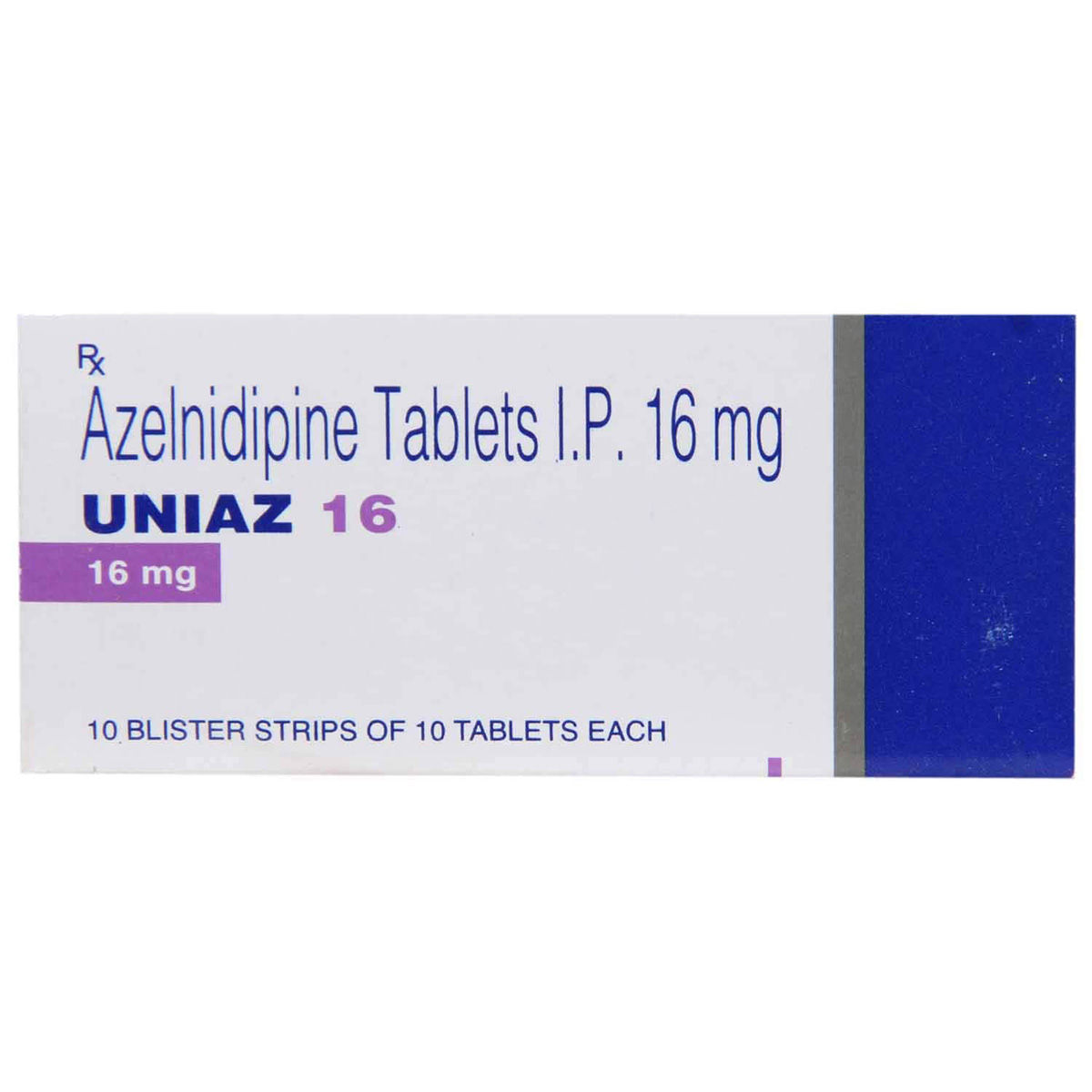Azelnidipine
About Azelnidipine
Azelnidipine belongs to a class of anti-hypertensive drugs primarily used to treat hypertension (high blood pressure). Hypertension (high blood pressure) is a lifelong or chronic condition in which the force exerted by the blood against the artery walls becomes high. The higher the blood pressure, the harder the heart pumps blood.
Azelnidipine contains Azelnidipine, a calcium channel blocker that acts by relaxing the blood vessels. This reduces the workload on the heart and makes the heart more efficient at pumping blood throughout the body. Thus, it helps to lower high blood pressure, reducing the chances of heart attack or stroke.
Azelnidipine is taken dose and duration as advised by the doctor. Azelnidipine may cause common side effects such as headaches, dizziness, swelling, and weakness. Most of these side effects do not require medical attention and usually resolve after some time. However, you are advised to talk to your doctor if you experience these side effects persistently.
Pregnant or breastfeeding women should consult their doctor for advice before taking Azelnidipine. You must closely monitor your blood pressure if you have ever had a stroke or heart attack or are currently taking other blood pressure-lowering pills. It is advised to continue taking Azelnidipine for as long as your doctor has advised. Keep your doctor informed about your health condition and all the medicines you take to rule out any side effects.
Uses of Azelnidipine
Treatment of Hypertension (High blood pressure)
Medicinal Benefits
Azelnidipine contains Azelnidipine, a calcium channel blocker that acts by relaxing the blood vessels. This reduces the workload on the heart and makes the heart more efficient at pumping blood throughout the body. Thus, it helps to lower high blood pressure, reducing the chances of heart attack or stroke.
Directions for Use
Swallow Azelnidipine as a whole with water; do not crush, break or chew it.
Storage
Store in a cool and dry place away from sunlight
Side Effects of Azelnidipine
Headache
- Fast heart rate
- The feeling of a fast or uneven heartbeat (palpitations)
- Sudden reddening of your face
- Neck or upper chest (flushing)
- Ankle swelling










